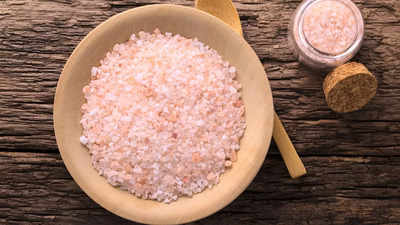Trending
Here's why this is the most expensive salt in the world
Korean bamboo salt stands as the most expensive salt globally, costing around ₹30,000 per kilogram in India. This unique salt undergoes a labor-intensive process over 45 to 50 days, involving repeated roasting in bamboo tubes at high temperatures, infusing it with essential minerals.
We use salt daily in the kitchen, and no dish is ever complete without it. At the same time, salt is one of the cheapest ingredients compared to other spices found in the kitchen. There are many types of salt: white salt, black salt, pink salt, kosher salt, smoked salt, pickling salt, and rock salt. Most homes cook with white and rock salt, costing only 10 to 20 rupees. Did you know that apart from these prevalent variants, there is a salt in the world that costs thousands of money and its production takes about several days? Oh yes, but very few people know about this special precious salt.
In this article, we will introduce you to the most expensive salt in the world. You will be shocked to learn about its price and the intricate process involved in making it. Hardly anyone has heard about this extraordinary salt. For your information, the most expensive salt in the world is known as Korean bamboo salt. It is prepared using a unique method that involves multiple steps. It is very well known that salt played a great role in India's independence movement. Mahatma Gandhi challenged the British salt laws and initiated the historic Dandi March.
Salt was highly expensive during British rule, but today, it is available at very low prices in India. Salt remains expensive in many foreign countries. Now, let us discuss the cost of the salt in this world that is considered the dearest—Korean bamboo salt. The price in India is approximately ₹30,000 per kilogram, whereas it is priced at around $347.37 per kilogram internationally. Production takes a lot of manual labour. According to reports, around 45 to 50 days are taken to produce it. Korean bamboo salt, also known as Jugyom, is white in colour.
For many years, Koreans have been using bamboo for cooking and medicinal purposes. This special salt is also prepared using bamboo. The process involves filling hollow bamboo tubes with sea salt and roasting them over a high flame. This allows the minerals from the bamboo to infuse into the salt.
Get real-time updates on Budget 2025 and Income Tax Slabs on Times of India. Check out the latest income tax slabs FY 2025-26.
End of Article
FOLLOW US ON SOCIAL MEDIA
Visual Stories
Tired of too many ads?go ad free now





















